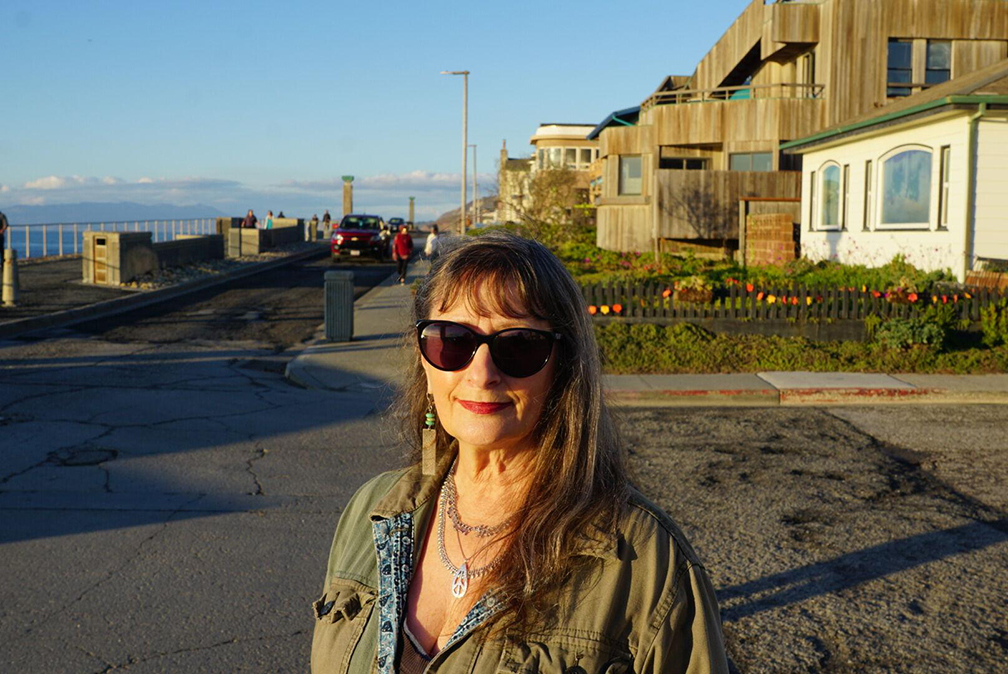Pacifica Residents Share Concerns About Short-Term Rentals
Caitlin Quinn loves Pacifica for its strong local community and the way the neighbors know each other. The colorful little houses in the coastal town’s West Sharp Park neighborhood are built close together and at the end of the street you can see the ocean.
However, Quinn thinks her once-familiar neighborhood has changed a lot over the past two years. Former longtime tenants near his house have moved out, some in search of more affordable housing. Over time, more homes were converted to short-term rentals occupied for less than 30 days. “Neighbors have been replaced by an ever-changing sea of faces and cars,” Quinn said at an Oct. 10 city council meeting, where an amendment to current short-term rental regulations was discussed. .
[Insert Video Here]
Quinn, who has lived in Pacifica for five years, isn’t alone in worrying that short-term rentals will change the face of the coastal town.
“We all feel the same unsettling sensation that we are losing our neighborhoods, the character of the neighborhood is changing, and we are deteriorating our limited housing,” Cindy Abbott, executive director of the Sanchez Art Center in Pacifica, said during the council meeting.
Since the emergence of platforms like Airbnb and Vrbo, short-term rentals have spread widely across the world. What started out as “renting a room to supplement your mortgage” quickly turned into a booming business model.
According to short-term rental analytics firm AirDNA, there were 194 short-term rental listings in Pacifica as of October 2022, 85% of them being entire homes instead of private or shared rooms, an increase of 20% of the total number of announcements compared to October. 2021.
Short-term rentals are financially beneficial to the City of Pacifica because they pay transient occupancy taxes. Since the 2018-19 fiscal year, the city has received more than $2.1 million in such taxes, which represents approximately 4% of the city’s total tax revenue. Tourists also strengthen the economy by spending money in local shops and restaurants. In addition, short-term rentals can be secondary income for landlords.
“I’m a single mom and I can’t afford the house on my own,” Cassandra Jones said of her family home in Pacifica during the Oct. 10 reunion. “So renting short-term housing allowed me to keep our home in the family.”
Abbott, Quinn and other residents said they don’t object to landlords who rent out a room in their home for a side income. Their biggest complaint is about non-hosted short-term rentals, which are increasingly being bought by companies above market value.
“I would love to buy a house here in Pacifica,” said Darcy, who has been renting in town for 10 years and wanted to be referred to by her first name only. “But how can you be competitive, when companies come in and pay everything in cash.”
Pacifica resident Cheryl Greene agreed. “Companies have different values and needs,” Greene said. They’re not going to “stand for the things that make Pacifica a better place to live, what they care about is making money.”
There is no comprehensive list of the number of short-term rentals held by corporations versus individual owners, but the number of units operated by a host can be used as a proxy. According to data from AirDNA, 21% of Pacifica’s short-term rentals are operated by a host with a single unit, an additional 21% by a host with two to five units on their profile, and the remaining 58% are operated by hosts with six or more short-term rentals.
With 19 holiday home listings, Marbella Lane is the only property management company with more than 10 listings. It has 19 vacation home listings in Pacifica, which is a 240% increase from last year.
Abbott and Quinn also worry about long-term impacts. In particular, they refer to a drop in schooling resulting in less state funding, as well as the loss of volunteers and regular customers of local businesses. Data from the California Department of Education shows school enrollment in Pacifica was down 7% in 2021-22 from 2020-21 and 10% from 2019-20. However, it is unclear whether this drop is due to short-term rentals replacing long-term tenants or other factors like the upheaval due to the pandemic.
In response to increasing complaints about short-term rentals, City Council voted on October 10 to cap the number of short-term rental permits at 150. However, the cap will only come into effect once evaluated and approved by the Coastal Commission.
The 150 count is based on an analysis by city staff, which identified 148 compliant short-term rental properties as of September 2022. Another 24 short-term rentals did not respond and were subject to efforts application by the city. Additionally, city staff point out that the number of active short-term rental listings changes frequently as operators add new properties and remove existing properties.
“A cap is a great starting point and is particularly useful for us to have time to discuss what a very strict ordinance on short-term rentals looks like,” Mayor Tygarjas Bigstyck said.
(Hannah Freitag/Peninsula Press)
A thorough ordinance could include neighborhood-specific regulations, separate rules for hosted and non-hosted short-term rentals, regulations on the number of guests and cars allowed, and minimum stay regulations.
“We can regulate the rooms; we can regulate the periods,” council member Sue Vaterlaus said in an interview. “There are many things we can regulate. We cannot regulate sales. She voted against a short-term rental license cap because she “believes in personal property rights and the right to rent your home.”
Pacifica isn’t the first coastal city to discuss tougher short-term rental regulations. Half Moon Bay passed an ordinance in September 2021 that included a 60-day limit on unattended lodging, meaning homeowners are only allowed to rent out their home without being there themselves for 60 days a year . The limit is intended to discourage the purchase of homes for the sole purpose of short-term year-round rental.
However, before coastal cities can implement short-term rental orders, they must obtain approval from the California Coastal Commission. The state agency plans and regulates the use of land and water in the coastal zone and wants to make the coast accessible to everyone. Half Moon Bay is still awaiting Board approval to enact its short-term rental ordinance.
Bigstyck also sees the Commission as “the biggest obstacle” to quickly implementing a cap in all neighborhoods.
“I plan to speak to various Coastal Commissioners sooner rather than later so I can get a more solid understanding of their perspective,” he said. “But so far it seems to me that having short-term rentals in the coastal area allows for greater accessibility for those trying to visit the beach, which is primarily their mission.”
According to Deputy City Manager Yulia Carter, city staff consulted with the Coast Commission regarding the council’s attempt to establish a cap of 150 short-term rentals. The commission requested detailed data, which staff are currently compiling. Subsequently, the file will come to the planning commission and then to the municipal council. Carter said the timeline is unknown at this time but will likely return to the city in early 2023.
“With the majority of hosts on Airbnb today sharing a single home and short-term rentals making up less than 1% of the housing stock in Pacifica, we welcome the opportunity to work with local leaders to advocate in favor of short-term rental rules that help address community concerns and ensure that home sharing continues to be an important source of income as people deal with the rising cost of living” , an Airbnb spokesperson said in a written statement on the matter.
While the total number of short-term rentals may be insignificant compared to Pacifica’s overall housing stock, vacation rentals are concentrated in the coastal neighborhoods of West Sharp Park and Pedro Point.
Looking at the short-term rentals on their street in West Sharp Park, Abbott and Quinn both said they appreciate the council’s dedication to the topic of deep personal concern. While they view the cap as a good first step, they hope to see a thorough ordinance that addresses long-term, neighborhood-specific impacts.
“Every time a corporation buys a property to become an unhoused short-term rental in a neighborhood in Pacifica, a family gets a much-needed home stolen from them,” Quinn said. “Without neighbors there is no community, only a revolving door of tourists.”
Hannah holds a bachelor’s degree in social sciences from Humboldt University in Berlin, Germany. She is passionate about society and politics and chose the social sciences to be a journalist who reports well informed on socio-political subjects. Hannah worked at Humboldt University as a research assistant to improve her data science skills and be able to write stories based on data. Her interest in international politics brought her to the EU capital – Brussels – for six months where she completed an internship at the European Commission’s central press office. She supported the digital economy and innovation team in various press releases and communications on Commission policy proposals. In her spare time, Hannah likes to spend active time outdoors in nature and discovering new places. At other times, she likes to sing, play the piano or the saxophone.



Comments are closed.